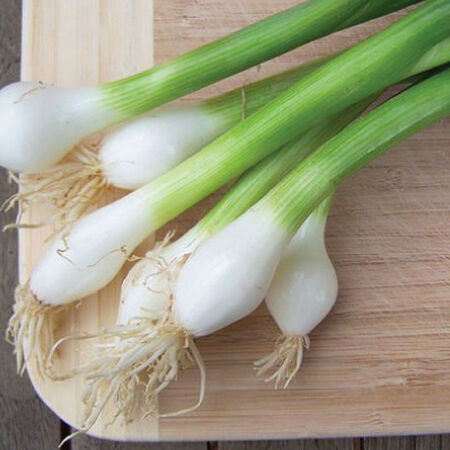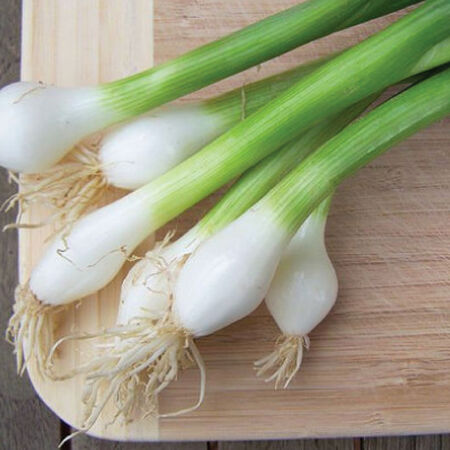My Store
Takyo Long White Bunching Onions
Takyo Long White Bunching Onions
Couldn't load pickup availability
60-90 Days to maturity. Allium fistulosum. Tokyo Long White Onion Seeds. Non-GMO, perennial, open-pollinated, heirloom, cold tolerant, drought tolerant, bunching onion. Suitable for growing in greenhouses, garden plots, raised beds, and containers. Resistant to Botrytis Leaf Blight, Pink Root Rot. Although related to the traditional garden onion bulb, Tokyo Long bunching onions grow much faster, easier, and even taste a whole lot better.
Bunching onions are grown very different to larger bulb onions. Bunching onions grow best in bunches with no worry of spacing. Tightly broadcast seeds in the garden or sow about 10 per hole 1 inch deep in loamy, well-drained soil in full sun. Seeds may also be started indoors 5-6 weeks indoors before transplanting. Bunching onions are tenacious and grow in nearly any kind of soil. Bunching onion does not grow perennially as a bulb.
When planted from seed, Tokyo Long White Onions grow to maturity in 65-100 days. Bunching onions have slender roots and start to form scallions in a few weeks. Harvest as tender scallions or wait for slender 16-18" stalks to grow. Can be grown in fall or spring when temperatures are in the 60"s. This particular bunching onion variety can be grown in container gardens and small spaces due to having a smaller root system.
Onions are resistant to hot weather but are cold tolerant. Best known as a cultivar that grows well in small spaces and in container gardens. Bunching onions have a pungent flavor and are raised for their long white stalks with stiff blue-green tops. Considered a warm-season annual because Tokyo Long White Onions do not overwinter well.
With their slightly pungent taste, Tokyo Long White Onions are a great option for use in dishes that require scallions. These are great on top of eggs, salads, baked potatoes, and pasta. This is also a great option for a person who is gardening in containers or has limited space like a balcony. Bunching onions are great as a border plant because they resemble ornamental grasses and often deter pests.
Approx. 100 per pack
Share


